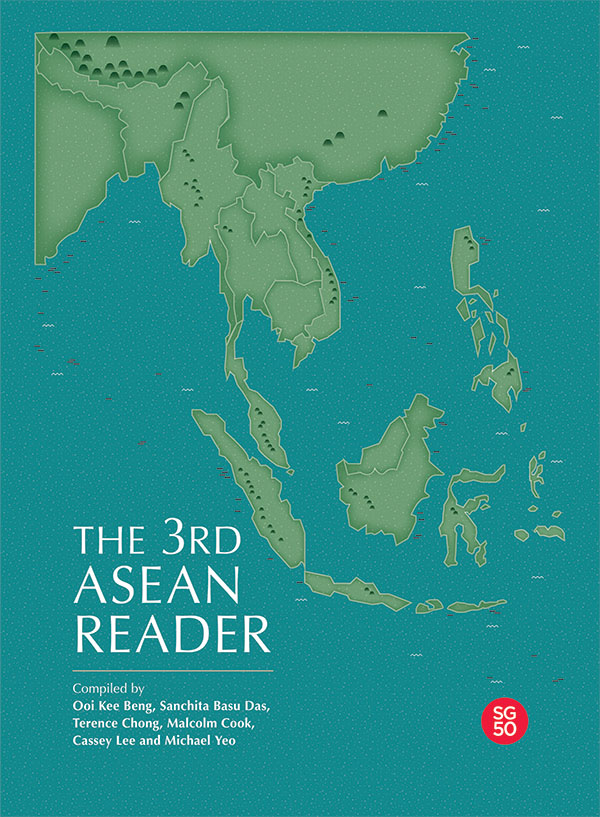Book contents
- Frontmatter
- Contents
- Preface
- Forewords to the First and Second ASEAN Reader: ASEAN: Conception and Evolution
- Forewords to the First and Second ASEAN Reader: ASEAN: The Way Ahead
- Forewords to the First and Second ASEAN Reader: New Challenges for ASEAN
- SECTION I ASEAN: THE LONG VIEW
- SECTION II COUNTRY ANALYSES
- SECTION III COMPARATIVE ANALYSES OF THE REGION
- Southeast Asian Societies
- 12 Civil Society in Southeast Asia
- 13 Multicultural Realities and Membership: States, Migrations and Citizenship in Asia
- 14 Education in Southeast Asia: Investments, Achievements, and Returns
- 15 Asian Pentecostalism: Renewals, Megachurches, and Social Engagement
- 16 The Rise of Middle Classes in Southeast Asia
- The Southeast Asian Economy
- Southeast Asian Politics
- SECTION IV INTERNATIONAL DEVELOPMENTS
- SECTION V INSTITUTIONS OF ASEAN
- SECTION VI ASSESSING ASEAN'S INTERNAL POLICIES
- ASEAN Political Security Community
- ASEAN Economic Community
- ASEAN Socio-Cultural Community
- SECTION VII ASSESSING ASEAN'S EXTERNAL INITIATIVES
- ASEAN Processes
- ASEAN's Major Power Relations
- SECTION VIII SOUTHEAST ASIA: PERIPHERAL NO MORE
- Bibliography
- The Contributors
- The Compilers
13 - Multicultural Realities and Membership: States, Migrations and Citizenship in Asia
from Southeast Asian Societies
Published online by Cambridge University Press: 22 June 2017
- Frontmatter
- Contents
- Preface
- Forewords to the First and Second ASEAN Reader: ASEAN: Conception and Evolution
- Forewords to the First and Second ASEAN Reader: ASEAN: The Way Ahead
- Forewords to the First and Second ASEAN Reader: New Challenges for ASEAN
- SECTION I ASEAN: THE LONG VIEW
- SECTION II COUNTRY ANALYSES
- SECTION III COMPARATIVE ANALYSES OF THE REGION
- Southeast Asian Societies
- 12 Civil Society in Southeast Asia
- 13 Multicultural Realities and Membership: States, Migrations and Citizenship in Asia
- 14 Education in Southeast Asia: Investments, Achievements, and Returns
- 15 Asian Pentecostalism: Renewals, Megachurches, and Social Engagement
- 16 The Rise of Middle Classes in Southeast Asia
- The Southeast Asian Economy
- Southeast Asian Politics
- SECTION IV INTERNATIONAL DEVELOPMENTS
- SECTION V INSTITUTIONS OF ASEAN
- SECTION VI ASSESSING ASEAN'S INTERNAL POLICIES
- ASEAN Political Security Community
- ASEAN Economic Community
- ASEAN Socio-Cultural Community
- SECTION VII ASSESSING ASEAN'S EXTERNAL INITIATIVES
- ASEAN Processes
- ASEAN's Major Power Relations
- SECTION VIII SOUTHEAST ASIA: PERIPHERAL NO MORE
- Bibliography
- The Contributors
- The Compilers
Summary
INTRODUCTION
This chapter will examine some tendencies in selected Asian countries which have been affected by migration. Firstly, unlike the historical linkage to the post-Westphalian idea of the nation-state, the long colonial legacy in Asia and the rise of the nation-state in the post-colonial period de-linked the development of citizenship from the long process of “forgetting” which part of the evolution of the nation-state was in the Western experience.
Secondly, the specific migration system that developed in some Asian countries, which is premised on keeping migration temporary, rules out settlement, family reunification and long-term integration, including acquisition of citizenship, for less skilled migrants.
This chapter addresses three questions: (1) How is migration in Asia redefining state conceptions of citizenship? (2) How accessible is the acquisition of citizenship to migrants in Asian countries? (3) What alternative pathways are available in the Asian context for migrants’ incorporation in countries of destination?
WHAT DOES CITIZENSHIP MEAN?
In the contemporary context of intense cross-border movements and possibilities for multiple belonging, the boundaries between “citizens” (insiders) and “non-citizens” (outsiders) have been blurred, rendering the measurement of international migration more difficult. Beyond measurement issues, the meaning of citizenship has become more contested under conditions of globalization, unabated international migration and the emergence of transnational communities.
The shift in status from citizen/national to non-citizen/non-national — and the corresponding loss of a set of rights is one of the factors that makes international migration inherently risky (Bhabha 2005).
International migrants who reside in a state where they are not citizens have varying degrees of inclusion and exclusion in the receiving state.
Different approaches or models of migrant incorporation define the place of migrants in receiving states. These approaches range from differential exclusion, which allows migrants to participate in certain spheres of national life but not in others (e.g., temporary migrant workers are allowed to participate in the economic sphere, but are otherwise excluded from the social, cultural and political life of the receiving society), to assimilation (which requires cultural assimilation of migrants), to multiculturalism (which provides latitude for cultural expression) (Castles 2000).
From a rights perspective, people on the move do not (and should not) lose their rights when they cross borders. From the standpoint of the nation-state, however, states have the right and the duty to protect national interests from “foreign” interests.
- Type
- Chapter
- Information
- The 3rd ASEAN Reader , pp. 69 - 74Publisher: ISEAS–Yusof Ishak InstitutePrint publication year: 2015



